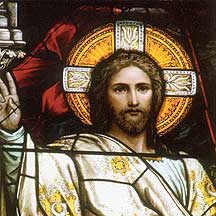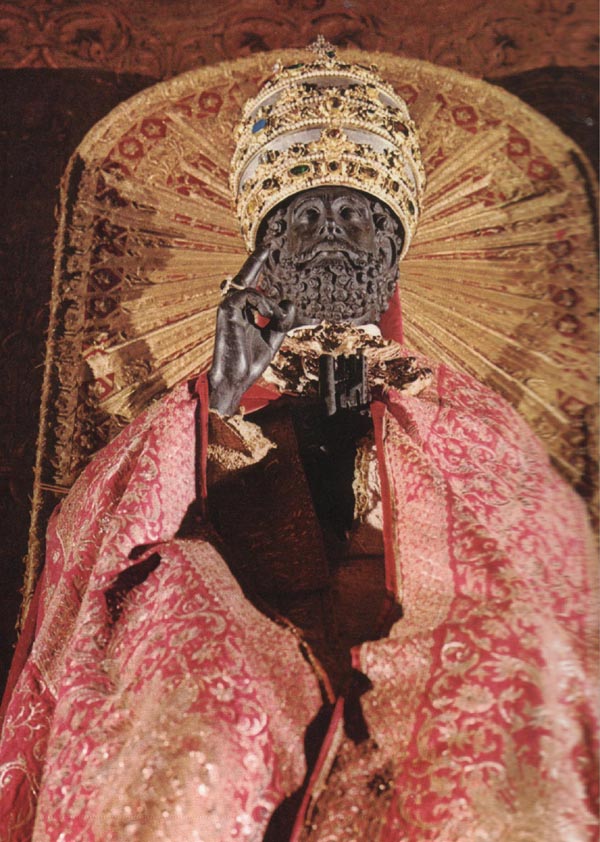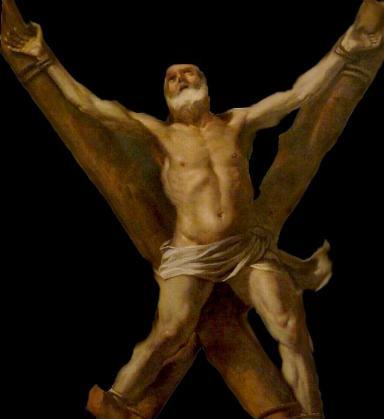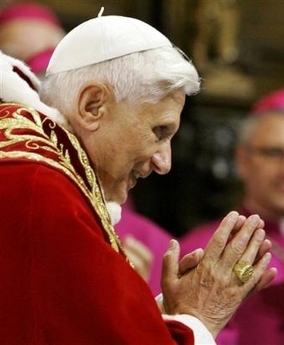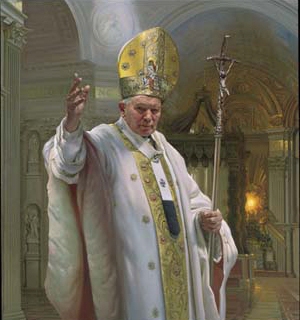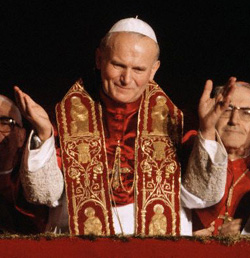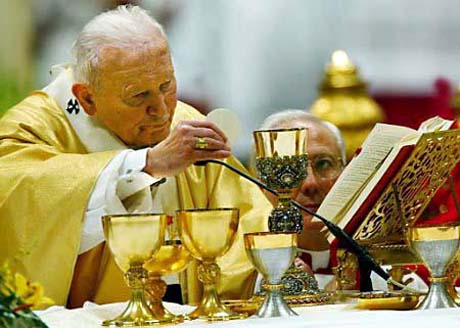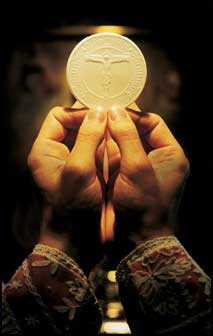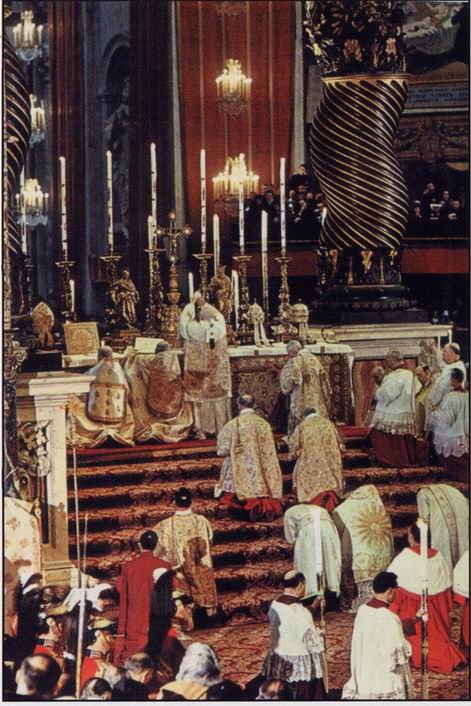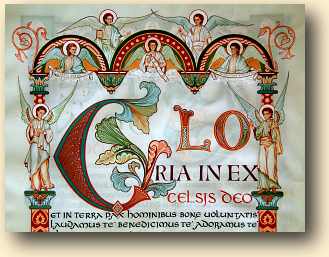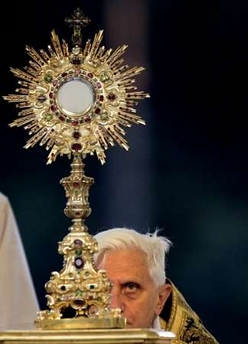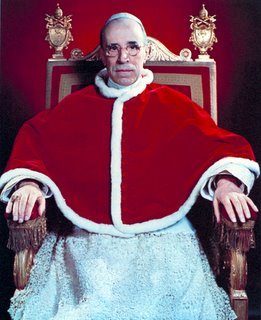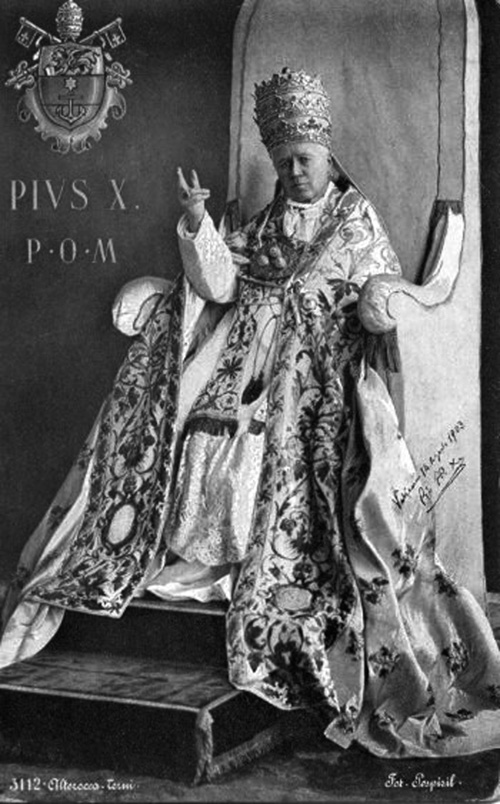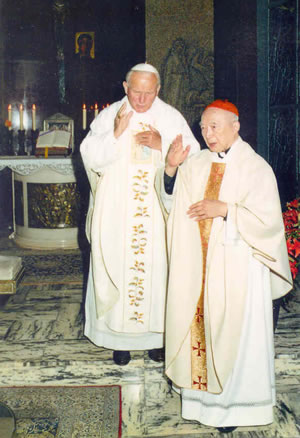Recently, someone wrote in to the editor of the Catholic Weekly, The Herald, complaining about a certain "senior catechist" who was allegedly teaching "out-dated" doctrines under the cover of purporting to teach the Catholic Faith to an RCIA class.
Several doctrines were cited by the writer. The editor then invited comments from the readers.
In the following weeks, several people wrote in to chastise the "senior catechist" for mis-representing the Catholic Faith and spreading "error". However, none ventured to cite any authoritative Church documents such as the Catechism or any conciliar documents or papal definitions in support thereof.
Afraid of the theological ambiguity that this was causing, I decided to write in to present the teaching of the Church. This was my first ever letter to the editor. Even though on several other occasions, I was tempted to write to clarify something, the opportunity passed.
Here is the letter I sent, in full. Not sure how much of it is going to get printed though, due to lack of space, etc.
Dear Editor,
Several doctrines were cited by the writer. The editor then invited comments from the readers.
In the following weeks, several people wrote in to chastise the "senior catechist" for mis-representing the Catholic Faith and spreading "error". However, none ventured to cite any authoritative Church documents such as the Catechism or any conciliar documents or papal definitions in support thereof.
Afraid of the theological ambiguity that this was causing, I decided to write in to present the teaching of the Church. This was my first ever letter to the editor. Even though on several other occasions, I was tempted to write to clarify something, the opportunity passed.
Here is the letter I sent, in full. Not sure how much of it is going to get printed though, due to lack of space, etc.
Dear Editor,
I am writing to in response to the letter from Clarence Abraham which appeared in the Aug 14 issue of the Herald regarding a senior catechist allegedly teaching "error" in the RCIA program and also a letter from a "Retired Catechist" in response thereof. I was extremely saddened to read the response of the "Retired Catechist". No concrete examples of the alleged "error" of the senior catechist quoted by Clarence Abraham was given but instead a lot of innuendos(catechetical abuser, misguided catechist, etc) and insinuations regarding the knowledge and "false teachings" of the said senior catechist were made. It is truly a sad a deplorable state of affairs where presenting the unadulterated teaching of the Church garners not thanks but such a negative response from those who purport to hold the Catholic Faith.
And so, I am now writing to present the unchanging and immutable teachings of Holy Mother Church as contained in Scripture, Tradition and the Magisterium pertaining to Faith and Morals. The Truth is objective and immutable and what is true at one time (in a matter of Faith and Morals, as distinguished from a matter of changeable discipline) cannot be false or "out-dated" at another time (Pope St Pius X, PASCENDI DOMINICI GREGIS 12, 13 and 26). However, due to the limited space that is the nature of a letter to the editor, I am confining my response to only several questions that are related to the Faith, which is unchanging rather than practices or disciplines which are subject to change.
Item 1-"Those who die in mortal sin will be sent straight to Hell on their death. there they will be tormented by Hell Fire for all eternity. They will suffer both a pain of loss(despair, remorse, envy...) and a pain of sense i.e. they will suffer from fire which will torment all our senses-sight, hearing, smell, taste and touch.
Item 10-"That Hell is a place of torment-an unquenchable fire, a burning furnace, a bottomless pit of everlasting fire"
First off, this question is addressed in the current Catechism of the Catholic Church, the Catechism of the Council of Trent (also known as the Roman Catechism cf CCC#9) and the Catechism of St Pius X, the 3 magisterial universal Catechisms extant in the Church. The Baltimore Catechism also addresses this topic as does numerous Fathers of the Church and its Holy Doctors and Saints. Our Lord also speaks more on this subject(Salvation and Reprobation) more than any other subject and Sacred Scripture is filled with references on Hell, its nature and its Eternity.
For this and other questions, we will concentrate on the 1994 Catechism promulgated by H.H. Pope John Paul the Great of Blessed Memory and where the 1994 Catechism is silent, we will consult the Roman Catechism, the Catechism of St Pius X, the Baltimore Catechism and the Fathers.
[CCC 9 "The ministry of catechesis draws ever fresh energy from the councils. The Council of Trent is a noteworthy example of this. It gave catechesis priority in its constitutions and decrees. It lies at the origin of the Roman Catechism, which is also known by the name of that council and which is a work of the first rank as a summary of Christian teaching. . . ." The Council of Trent initiated a remarkable organization of the Church's catechesis. Thanks to the work of holy bishops and theologians such as St. Peter Canisius, St. Charles Borromeo, St. Turibius of Mongrovejo or St. Robert Bellarmine, it occasioned the publication of numerous catechisms.]
So, firstly, the Church teaches the infallibility of the Roman Pontiff when he speaks ex cathedra and of a properly constituted Ecumenical Council.
CCC 891 "The Roman Pontiff , head of the college of bishops, enjoys this infallibility in virtue of his office, when, as supreme pastor and teacher of all the faithful - who confirms his brethren in the faith he proclaims by a definitive act a doctrine pertaining to faith or morals.... The infallibility promised to the Church is also present in the body of bishops when, together with Peter's successor, they exercise the supreme Magisterium," above all in an Ecumenical Council. 418 When the Church through its supreme Magisterium proposes a doctrine "for belief as being divinely revealed,"419 and as the teaching of Christ, the definitions "must be adhered to with the obedience of faith ."420 This infallibility extends as far as the deposit of divine Revelation itself421 (emphasis added).
419 DV 10 # 2.
420 LG 25 # 2.
421 Cf. LG 25.
The ordinary Magisterium is also infallible when teaching a topic repeatedly and this is to be held with a religious assent:
CCC 892 Divine assistance is also given to the successors of the apostles, teaching in communion with the successor of Peter, and, in a particular way, to the bishop of Rome, pastor of the whole Church, when, without arriving at an infallible definition and without pronouncing in a "definitive manner," they propose in the exercise of the ordinary Magisterium a teaching that leads to better understanding of Revelation in matters of faith and morals. To this ordinary teaching the faithful "are to adhere to it with religious assent "422 which, though distinct from the assent of faith, is nonetheless an extension of it (emphasis added).
422 LG 25.
So, with this in mind, we will now review the definitive teaching of the Church on the subject of Hell, its reality and duration, as well as the affirmation that the soul which dies in the state of mortal sin goes to Hell upon death and suffers the pains of Hell for all eternity.
Firstly, mortal sin and its consequences are defined as:
CCC 1861 Mortal sin is a radical possibility of human freedom, as is love itself. It results in the loss of charity and the privation of sanctifying grace, that is, of the state of grace. If it is not redeemed by repentance and God's forgiveness, it causes exclusion from Christ's kingdom and the eternal death of hell, for our freedom has the power to make choices for ever, with no turning back. However, although we can judge that an act is in itself a grave offense, we must entrust judgment of persons to the justice and mercy of God (emphasis added).
Following from this, Hell's nature and duration are touched on:CCC 1034 Jesus often speaks of "Gehenna" of " the unquenchable fire" reserved for those who to the end of their lives refuse to believe and be converted, where both soul and body can be lost.612 Jesus solemnly proclaims that he "will send his angels, and they will gather . . . all evil doers, and throw them into the furnace of fire," 613 and that he will pronounce the condemnation: "Depart from me, you cursed, into the eternal fire!"614
612 Cf. Mt 5:22, 29; 10:28; 13:42, 50; Mk 9:43-48.;
613 Mt 13:41-42.;
614 Mt 25:41.
And in another place:
CCC 1035 The teaching of the Church affirms the existence of hell and its eternity. Immediately after death the souls of those who die in a state of mortal sin descend into hell, where they suffer the punishments of hell, "eternal fire." 615The chief punishment of hell is eternal separation from God, in whom alone man can possess the life and happiness for which he was created and for which he longs (emphasis added).
615 Cf. DS 76; 409; 411; 801; 858; 1002; 1351; 1575; Paul VI, CPG # 12.
CCC 1022 Each man receives his eternal retribution in his immortal soul at the very moment of his death, in a particular judgment that refers his life to Christ: either entrance into the blessedness of heaven-through a purification592 or immediately,593--or immediate and everlasting damnation.594 (Emphasis added)At the evening of life, we shall be judged on our love.595
592 Cf. Council of Lyons II (1274): DS 857-858; Council of Florence (1439): DS 1304- 1306; Council of Trent (1563): DS 1820.
593 Cf. Benedict XII, Benedictus Deus (1336): DS 1000-1001; John XXII, Ne super his (1334): DS 990.
594 Cf. Benedict XII, 8enedictus Deus (1336): DS 1002.
595 St. John of the Cross, Dichos 64.
The Roman Catechism also affirms this:
The next words, into everlasting fire, express another sort of punishment, which is called by theologians the pain of sense, because, like lashes, stripes or other more severe chastisements, among which fire, no doubt, produces the most intense pain, it is felt through the organs of sense. When, moreover, we reflect that this torment is to be eternal, we can see at once that the punishment of the damned includes every kind of suffering. (Catechism of the Council of Trent-ARTICLE VII: "FROM THENCE HE SHALL COME TO JUDGE THE LIVING AND THE DEAD", Circumstances of the Judgment: The sentence of the wicked.)
Other parts of the Catechism which touch on mortal sin, the state of grace and the hour of death and Hell are CCC 1057, CCC 1033, CCC 1037, CCC 1861, CCC 1874 and CCC 1014.
And so, in summary, regarding the question of Hell, unsavoury as it may seem to our "modernist" eyes and offensive as it is to our "universalist" sensibilities which believes that the average Joe in the Pew is bound Heavenward, sins and all because "God accept us as we are", the senior catechist quoted by Clarence Abraham is merely stating the orthodox and unchanging teaching of Holy Mother Church. Other Catechists, retired or otherwise, should take their designation and duties seriously and consult the official teachings of the Church, which are public and easily available, before commenting on matters of the Faith. Holy Church gives us this to ponder on regarding the purpose of this dogma:CCC 1056 Following the example of Christ, the Church warns the faithful of the "sad and lamentable reality of eternal death" ( GCD 69), also called "hell."CCC 1036 The affirmations of Sacred Scripture and the teachings of the Church on the subject of hell are a call to the responsibility incumbent upon man to make use of his freedom in view of his eternal destiny . They are at the same time an urgent call to conversion: "Enter by the narrow gate; for the gate is wide and the way is easy, that leads to destruction, and those who enter by it are many. For the gate is narrow and the way is hard, that leads to life, and those who find it are few." 616 Since we know neither the day nor the hour, we should follow the advice of the Lord and watch constantly so that, when the single course of our earthly life is completed, we may merit to enter with him into the marriage feast and be numbered among the blessed, and not, like the wicked and slothful servants, be ordered to depart into the eternal fire, into the outer darkness where "men will weep and gnash their teeth." 617616 Mt 7:13-14.617 LG 48 # 3; Mt 22:13; cf. Heb 9:27; Mt 25:13, 26, 30, 31 46. But why affirm such a troublesome and politically incorrect doctrine? Merely because its the Truth and more than that, a truth of the Christian Faith and denying it, or any other article of the Catholic Faith that comes to us from the Apostles, causes one to be excluded from the boundaries of the Church, the One Ark of Salvation, outside which no one can be saved. (CCC 846) Item 7-"That at the resurrection, our risen bodies will be the same as those we had on earth." The Catechism has this to say:CCC 1059 "The holy Roman Church firmly believes and confesses that on the Day of Judgment all men will appear in their own bodies before Christ's tribunal to render an account of their own deeds" (Council of Lyons II [1274]: DS 859; cf. DS 1549). Item 11-"That the rewards of Heaven will not be the same for all. It will vary according to the goodness of life lived here on earth." That there are various degrees of beatitude in heaven corresponding to the various degrees of merit is a dogma of faith, defined by the Council of Florence (Denz., n. 693 -- old, n. 588). The Scriptures teach this truth in very many passages ( e.g., wherever it speaks of eternal happiness as a reward), and the Fathers defend it against the heretical attacks of Jovinian. (Catholic Encyclopedia-Heaven, VII. ATTRIBUTES OF BEATITUDE)Holy Scripture also teaches that there will be degrees of reward for believers. Paul encourages the Corinthians to be careful how they build the church on the foundation that has already been laid-Jesus Christ himself meaning that we are rewarded only for good works done in Christ and guards against Pelagianism and talks about some form of purification after death(Purgatory). Now, if any man build upon this foundation, gold, silver, precious stones, wood, hay, stubble: Every man's work shall be manifest. For the day of the Lord shall declare it, because it shall be revealed in fire. And the fire shall try every man's work, of what sort it is. If any man's work abide, which he hath built thereupon, he shall receive a reward. If any mans work burn, he shall suffer loss: but he himself shall be saved, yet so as by fire. (1Cor 3:12-15)Paul similarly says of Christians that "we must all be manifested before the Judgment Seat of Christ, that every one may receive the proper things of the body, according as he hath done, whether it be good or evil" (2 Cor. 5:10), again implying degrees of reward for what we have done in this life. Likewise, in the parable of the pounds, the one who made ten pounds more was told, "You shall have authority over ten cities," and the one whose pound had made five pounds more was told, "And you are to be over five cities" (Luke 19:17, 19). Many other passages likewise teach or imply degrees of reward for believers at the final judgment. Now he that planteth and he that watereth, are one. And every man shall receive his own reward, according to his own labour. (1Cor 3:8) But we must guard against misunderstanding here: Even though there will be degrees of reward in heaven, the joy of each person will be full and complete for eternity. According to the Catechism: CCC 682 When he comes at the end of time to judge the living and the dead, the glorious Christ will reveal the secret disposition of hearts and will render to each man according to his works, and according to his acceptance or refusal of grace.CCC 1021 Death puts an end to human life as the time open to either accepting or rejecting the divine grace manifested in Christ.592 The New Testament speaks of judgment primarily in its aspect of the final encounter with Christ in his second coming, but also repeatedly affirms that each will be rewarded immediately after death in accordance with his works and faith. The parable of the poor man Lazarus and the words of Christ on the cross to the good thief, as well as other New Testament texts speak of a final destiny of the soul--a destiny which can be different for some and for others. 593 592 Cf. Council of Lyons II (1274): DS 857-858; Council of Florence (1439): DS 1304- 1306; Council of Trent (1563): DS 1820.593 Cf. Benedict XII, Benedictus Deus (1336): DS 1000-1001; John XXII, Ne super his (1334): DS 990. On matters of discipline, rather than Faith and Morals, another item brought up was:Item 3-"That Catholics are forbiddent to cremate the dead. All Catholics should be given a proper Church burial in a properly blessed Catholic cemetery." This was the ancient and pious discipline of the Church following from the teaching that "CCC 2300 The bodies of the dead must be treated with respect and charity, in faith and hope of the Resurrection. The burial of the dead is a corporal work of mercy;91 it honors the children of God, who are temples of the Holy Spirit. "91 Cf. Tob 1:16-18.The 1917 Code of Canon Law forbade cremation [and specified that if someone has prescribed that his body be cremated it is not lawful to execute his will. If it is inserted in a contract, a will, or any act, it must be held as naught (Canon 1203, §2)] but because cremation is no longer associated with a denial of the resurrection of the dead and the immortality of the soul, the revised Code of Canon Law of the Catholic Church(1983) permits cremation. However, burial, a corporal work of mercy, is still commended by the Church and is its preferred way of treating mortal remains. The current Catechism has this to say: CCC 2301 The Church permits cremation, provided that it does not demonstrate a denial of faith in the resurrection of the body.9292 Cf. CIC, can. 1176 # 3.Similarly, the Code of Canon Law (1983) in BOOK IV The Sanctifying Office Of The Church , PART II : THE OTHER ACTS OF DIVINE WORSHIP, TITLE III: CHURCH FUNERALS, Canon 1176 has this to say: § 3 The Church earnestly recommends that the pious custom of burial be retained; but it does not forbid cremation, unless this is chosen for reasons which are contrary to Christian teaching. Item 4-"That apostates, heretics, schismatics, the ex-communicated, suicides, duellists, Masons and public sinners are not permitted to be buried in a consecrated Catholic Cemetery." While the Code is silent on burial in a consecrated cemetery, The Code of Canon Law has this to say regarding Church Funerals:BOOK IV The Sanctifying Office Of The Church , PART II : THE OTHER ACTS OF DIVINE WORSHIP, TITLE III: CHURCH FUNERALS, CHAPTER II : THOSE TO WHOM CHURCH FUNERALS ARE TO BE ALLOWED OR DENIED, Canon 1176 has this to say: Can. 1176 §1 Christ's faithful who have died are to be given a Church funeral according to the norms of law. Can. 1184 §1 Church funeral rites are to be denied to the following, unless they gave some signs of repentance before death: 1° notorious apostates, heretics and schismatics; 2° those who for anti-christian motives chose that their bodies be cremated; 3° other manifest sinners to whom a Church funeral could not be granted without public scandal to the faithful. Can. 1185 Any form of funeral Mass is also to be denied to a person who has been excluded from a Church funeral. Note that these are disciplinary in nature and not dogmatic per se, but since they are issued by the competent legislative authority, are binding on the faithful nonetheless. In approaching their task, catechists are well-advised to bear in mind the warning of James that those who are teachers will be held to a higher standard (Jas. 3:1). Catechists must convey the Catholic Faith in all its fullness, accurately, clearly, and in a way suited to the needs of their individual students and constantly pray for God's grace and assistance. Andrew(andrew4jc@gmail.com )PenangAndrew Khoo(IC 810705-10-5713)Tel:016-4454445 PSPls use my pseudonym and include my email address should anyone like to continue this discussion or seek a personal clarification. Pls feel free to contact me using the numbers above should a clarification be needed. Should space allow, I would like to respond to the other matters raised as well in another letter should the Editor allow.Thank you.PPSThe other articles quoted from the Catechism are attached below should you want to refer to them. CCC 1057 Hell's principal punishment consists of eternal separation from God in whom alone man can have the life and happiness for which he was created and for which he longs. CCC 1037 God predestines no one to go to hell; for this, a willful turning away from God (a mortal sin) is necessary, and persistence in it until the end. In the Eucharistic liturgy and in the daily prayers of her faithful, the Church implores the mercy of God, who does not want "any to perish, but all to come to repentance": Father, accept this offeringfrom your whole family.Grant us your peace in this life,save us from final damnation, and count us among those you have chosen. CCC 1861 Mortal sin is a radical possibility of human freedom, as is love itself. It results in the loss of charity and the privation of sanctifying grace, that is, of the state of grace. If it is not redeemed by repentance and God's forgiveness, it causes exclusion from Christ's kingdom and the eternal death of hell, for our freedom has the power to make choices for ever, with no turning back. However, although we can judge that an act is in itself a grave offense, we must entrust judgment of persons to the justice and mercy of God. CCC 1033 We cannot be united with God unless we freely choose to love him. But we cannot love God if we sin gravely against him, against our neighbor or against ourselves: "He who does not love remains in death. Anyone who hates his brother is a murderer, and you know that no murderer has eternal life abiding in him." Our Lord warns us that we shall be separated from him if we fail to meet the serious needs of the poor and the little ones who are his brethren. To die in mortal sin without repenting and accepting God's merciful love means remaining separated from him for ever by our own free choice. This state of definitive self-exclusion from communion with God and the blessed is called "hell." CCC 1874 To choose deliberately - that is, both knowing it and willing it - something gravely contrary to the divine law and to the ultimate end of man is to commit a mortal sin. This destroys in us the charity without which eternal beatitude is impossible. Unrepented, it brings eternal death. CCC 1033 We cannot be united with God unless we freely choose to love him. But we cannot love God if we sin gravely against him, against our neighbor or against ourselves: "He who does not love remains in death. Anyone who hates his brother is a murderer, and you know that no murderer has eternal life abiding in him." Our Lord warns us that we shall be separated from him if we fail to meet the serious needs of the poor and the little ones who are his brethren. To die in mortal sin without repenting and accepting God's merciful love means remaining separated from him for ever by our own free choice. This state of definitive self-exclusion from communion with God and the blessed is called "hell." CCC 1014 The Church encourages us to prepare ourselves for the hour of our death. In the ancient litany of the saints, for instance, she has us pray: "From a sudden and unforeseen death, deliver us, O Lord"; to ask the Mother of God to intercede for us "at the hour of our death" in the Hail Mary; and to entrust ourselves to St. Joseph, the patron of a happy death. Every action of yours, every thought, should be those of one who expects to die before the day is out. Death would have no great terrors for you if you had a quiet conscience. . . . Then why not keep clear of sin instead of running away from death? If you aren't fit to face death today, it's very unlikely you will be tomorrow. . . . Praised are you, my Lord, for our sister bodily Death,from whom no living man can escape.Woe on those who will die in mortal sin!Blessed are they who will be foundin your most holy will,for the second death will not harm them.
![[Unam Sanctam]](https://blogger.googleusercontent.com/img/b/R29vZ2xl/AVvXsEiymQ2adTjpZ1ABhPBbBBquiPCxeQrc4Jy_97vOikT0wGQeJleriiXQy6ebnb0jrYe-TfvcK77txStB4aIwVAdD41ZdMkVfNtFGC0JX6LBV9B8mfeRZaIAM7Sj-011ag3DiKQzv/s1600/headerdivinemercy.jpg)











